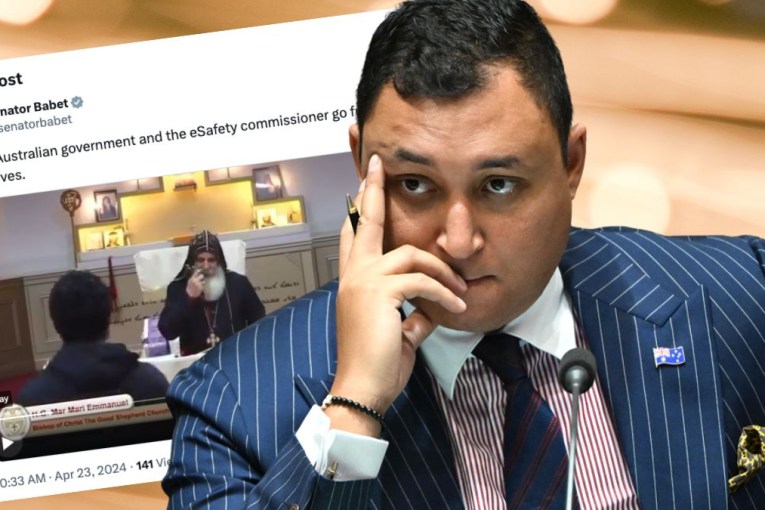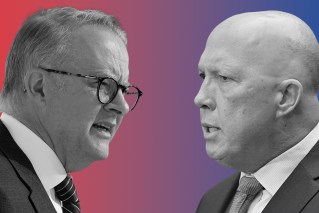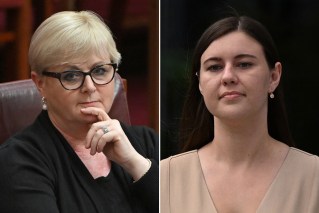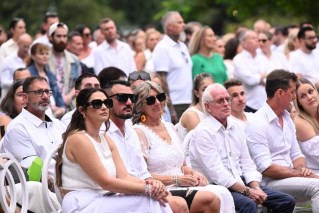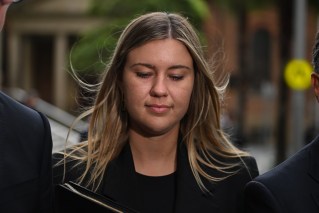The limited benefits and false comfort of hoping a face mask will beat the smoke
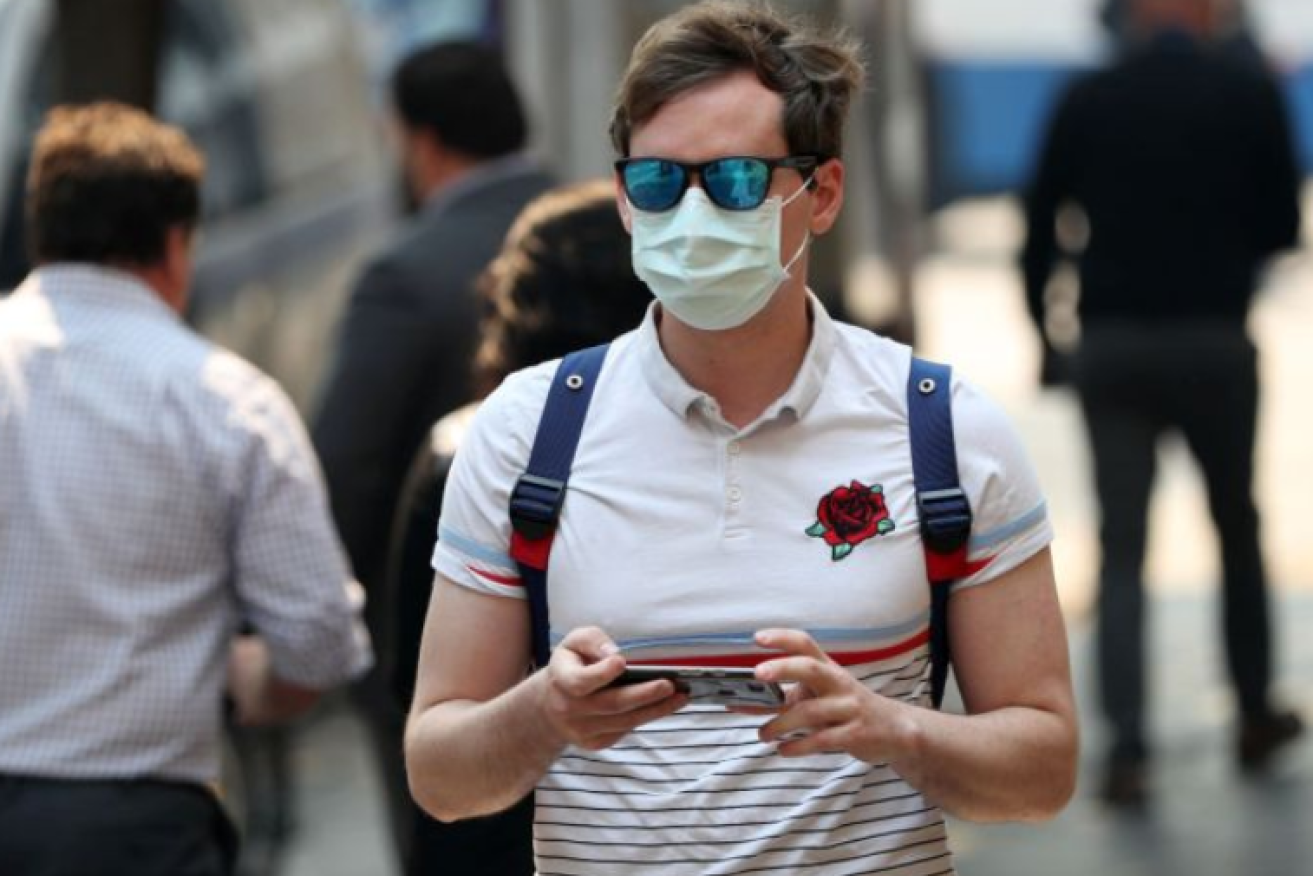
A mask of gauze offers comfort but little protection against the endemic smoke's effects. Photo: Getty
Sydney was blanketed in thick smoke the morning I drove to the city’s south west to meet GP Tim Senior.
Passing through the CBD, it was hard to make out buildings 200 metres ahead, and by midday, my aircon had conked it in the 35 degree heat.
Even back in early December, smoke from the nearby bushfires had begun to take a toll.
“Today is particularly bad,” said Dr Senior, who works at the Tharawal Aboriginal Corporation medical clinic, just outside Campbelltown.
He told me he first started to notice the smoke in mid-November, when the fires began.
“The smoke has just hung around and there’s not been any relief,” he said.
Like many GPs in parts of Australia, Dr Senior was noticing an increase in people with breathing problems as a result of bushfire smoke.
“We’re seeing more people coming in with respiratory symptoms — mainly coughing and a bit more short of breath,” he explained.
“A lot of people have been complaining of pain across their chest … sore eyes, runny nose, and sore throats.”
Even in early December, air quality in Sydney was three times worse than at any time in the previous five years.
Dr Senior, who specialises in Aboriginal and Torres Strait Islander health, told me then he was worried about what was to come.

Canberra has been named as having the worst air quality out of any major city in the world due to the smoke from bushfires. Photo: AAP
“We’ve been lucky so far that the heat here hasn’t been so prolonged … but I’m really aware summer has only just started,” he said.
“The fires are just so bad … I don’t see how this lets up.”
Since then Australia’s bushfire crisis has killed at least 20 people, destroyed or damaged at least 2,000 homes, and led to emergency declarations in two states.
These fires have caused prolonged and widespread smoke haze that has reduced air quality for millions of people across the country, including those living in some of our largest cities.
I caught up with Dr Senior again this week. It was another smoke-filled day and there had been little in the way of relief.
“People are feeling more wheezy, short of breath, and needing to use their inhalers to try and settle that down,” he said.
It hasn’t just been patients with pre-existing heart or lung conditions who have struggled with the smoke, either.
“Some people who don’t have a history of asthma are feeling short of breath and actually having to try using inhalers for the first time,” Dr Senior explained.
The psychological impacts of the bushfire crisis had become increasingly apparent too.
“I’m seeing people with more anxiety,” Dr Senior said.
“There’s this sense of a lack of control, that this is the environment we’re now living in, and there’s not a great deal we can do individually about that.
“That’s created this heightened level of tension and anxiety, which we know has long-term health effects.”
While Dr Senior and some his patients and colleagues have been affected by the smoke, he acknowledge other communities that had been hit much harder

Oakdale man Luke Wright tries to catch his breath after helping to save his brother’s home. Photo: ABC.
“I know it’s much, much worse for people I’ve spoken to down on the [NSW] south coast, where the capacity for [health] services to see people and handle their health problems has been really limited,” he said.
There are stories of regional doctors who have reported being sidelined or restricted when offering help at their local bushfire evacuation centres.
Or the doctors going to great lengths to keep working in their community, like the Cobargo doctor who set up his general practice out of a motorhome after he lost his surgery in the bushfires.
From the frontline of the fires to inner-city hospitals, Dr Senior said many healthcare workers had been feeling the effects.
“It feels really widespread … particularly in bushfire-affected areas, but even outside those areas,” he said.
“It’s putting pressure on the health system across a really broad area of Australia.”
Climate and health
Earlier this week, Health Minister Greg Hunt deployed extra medical staff to provide support to bushfire-affected communities. The Government also put in place protocols to speed up the process of getting GPs to communities in need.
But Dr Senior said more needs be done to prepare Australia’s health system for extreme weather events, including a long-term climate health strategy to help mitigate the effects of climate change.
“The climate emergencies that we’re seeing have health consequences, and that’s very real now,” he said.
“In the same way our fire services are doing an amazing job, they’re stretched and fatigued. I think we’ll see health and emergency services in the same way.”
In December, the Royal Australian College of General Practitioners joined other major medical colleges in declaring climate change a ‘health emergency’.
Dr Senior said one of the challenges of delivering healthcare in a bushfire crisis was having to send people back outside, or into their homes, which often offered little protection from the negative effects of smoke.
“When I see a patient today, I can do what I can for their respiratory symptoms, but I send them back out into the same air,” he said.
Poor housing and infrastructure is a considerable challenge in many Indigenous communities — a problem Dr Senior said is exacerbated with warmer temperatures, and poor air quality.
“In smoke affected areas … the advice is to stay indoors, and put your air-conditioner on if possible,” he said.
“For many people, where they don’t have good housing — and that’s often Aboriginal and Torres Strait Islander people — that advice is meaningless.
“We have to have policy that creates environments that keep people well … because it can’t all be done by treatment.”-
–ABC
